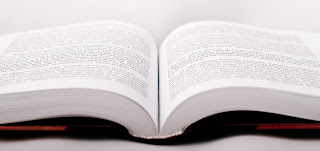I can only promise you one thing, that this is as happy an ending as you want it.
Let’s start with the fact that they were siblings: Murad, Solomon and Ishmael. Let’s have it clear that they were designed to be guardians for each other’s wellbeing, or each other’s living nightmare.
Near the start of a certain pilgrimage season, Murad asked for Ishmael’s brotherly help on a business he was running. Ishmael, the kindly small-time clerk in some obscure bank, quietly sold his house, quit his job and moved his young family to Jeddah to concentrate in helping Murad.
“He is my brother;” thought Ishamel, “I won’t rest if he’s in trouble, and he wouldn’t abandon his own brother, would he?”
The first to offer kindness are usually the first to get screwed over. After that season, Murad said: “Don’t you have a job? Why are you still in my office?”
“I thought this was a full time gig.”
And Murad shook his head impatiently, “Sorry, that wasn’t the deal. Here’s your pay for the season, now leave.”
***
I know, I know, I promised you a happy ending.
Solomon, the middle brother, took pity on Ishmael’s plight and promised to help. Without telling anyone, Solomon borrowed a hefty amount of money to reinstate Ishamel’s family in a house, arm them with a car and start an office that Ishmael can go to everyday.
Next, he borrowed more money to show that his business with Ishmael was doing excellently well.
At some point, there was more money borrowed than the means to pay it back. And the facade took less than a decade to fall apart: Solomon sent to jail, Ishmael died of heartbreak, and Murad demented under the weight of his prestigious positions and wealth.
***
I promised you a happy ending, didn’t I?
For one, both Solomon and Ishmael slept and died with clear conscience. They can look back and say, “I did my damndest even when I couldn’t afford it.”
Evidence of sacrificial acts of kindness can be seen in fruits of that passion. Having been through poverty, all of Solomon and Ishmael’s children came out self-sufficiently successful. Solomon’s children were educated under prestigious scholarships. Ishmael’s children, though as sweet and mild as their father was, command a silent kind of strength that burying a parent at fifteen years old would bring.
All of Solomon and Ishmael’s children futures seem bright and promising.
Murad’s children? Unbeknownst even to themselves, they’re self-dedicated to different kinds of poverty: seclusion, distrust, and ire.
Whether or not they realized it, they grew up nourished with money from the blood & tears of others. Whether they realize it or not, they don’t sleep well at night; bearing the sense of guilt and moral debt that are beyond their means to return.
Isn’t that a happy ending of some sort?



